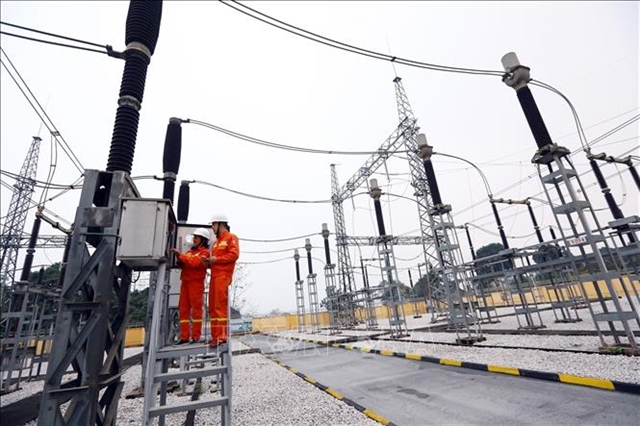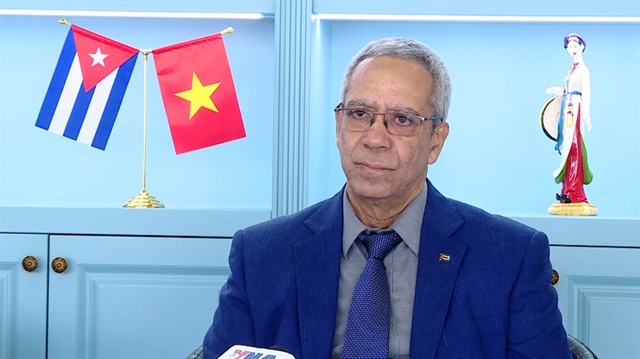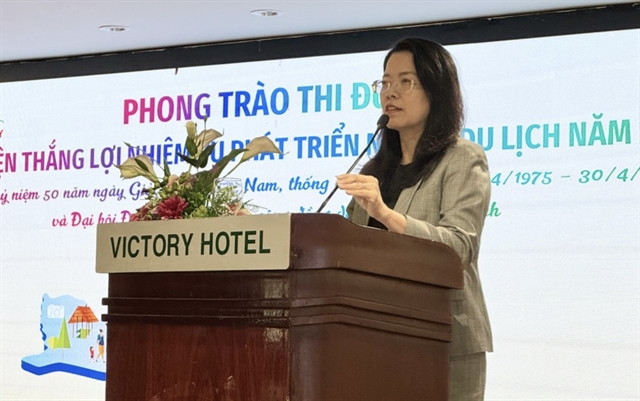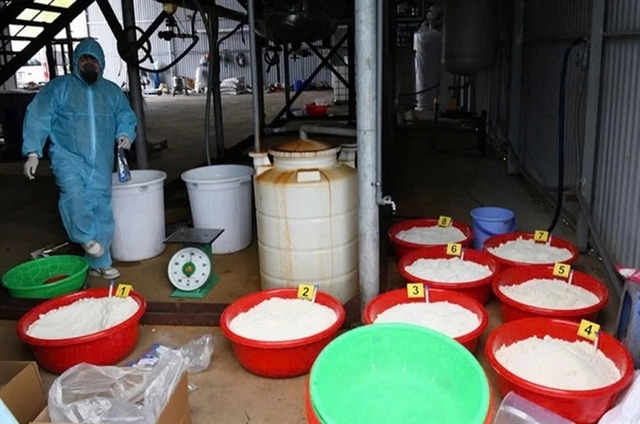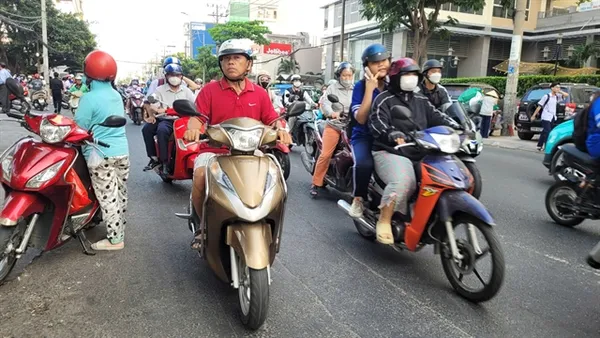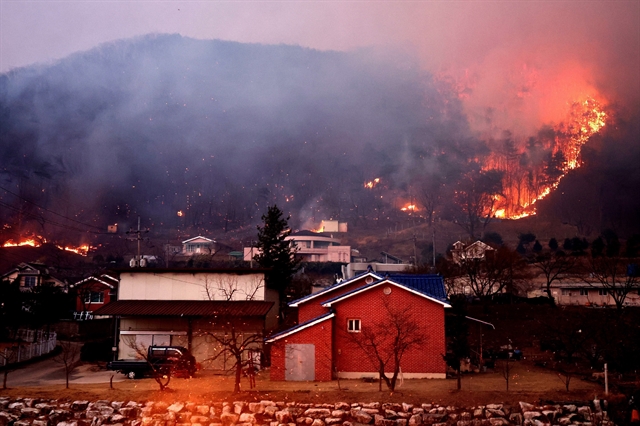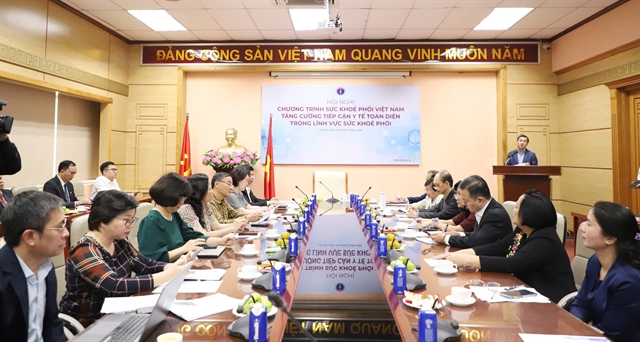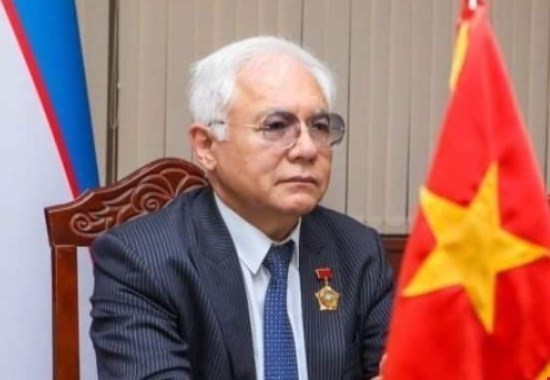 Opinion
Opinion
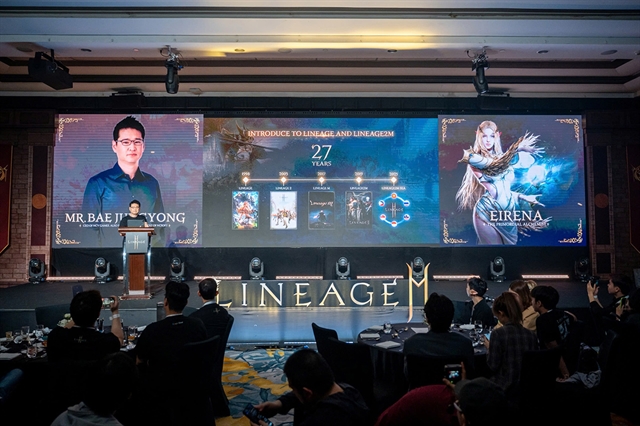
Mathilde Tuyết Trần* looks back to the events of April 30, 1975 and what that date means for her.
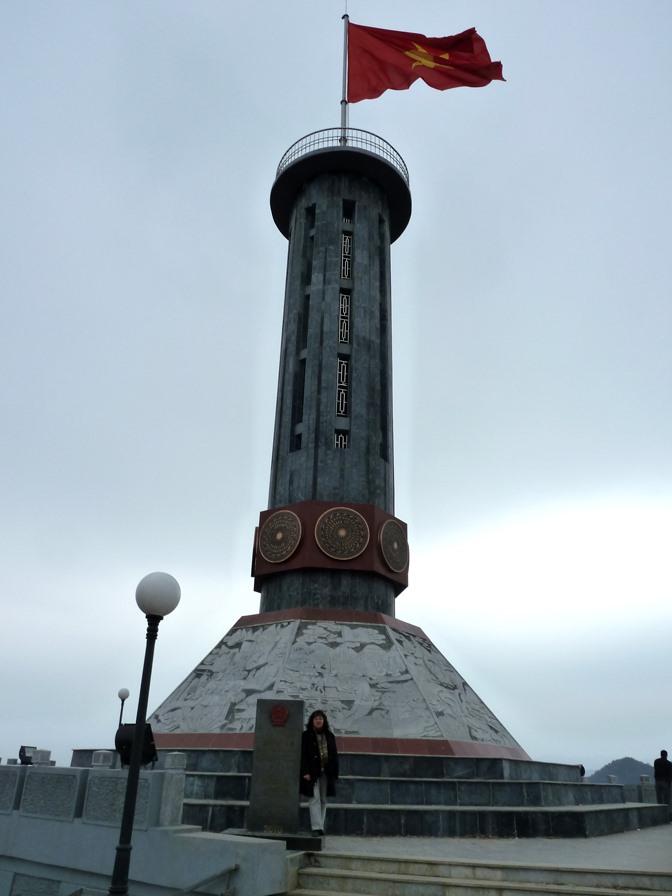 |
| Back in Việt Nam: Mathilde Tuyết Trần travelled to the northernmost point of Lũng Cú flagpole in the north |
Mathilde Tuyết Trần* looks back to the events of April 30, 1975 and what that date means for her. She writes exclusively for Việt Nam News.
It was a Wednesday.
April 30, 1975. A day I’ll never forget. For those of us living in Europe at that time we could be found either working or in college.
As we were all in a different time zone, we learned about events in Sài Gòn that day hours after it had actually happened.
I was at college in what was still West Germany at the time. The Aachen University. We watched the television reports and listened to the radio open mouthed. Jaws dropped as we took in the news.
Sài Gòn was lost or Sài Gòn was liberated. Was the glass of water half full or half empty? My mood back then was hard to put into words.
As the crow flies, the distance between my location and my home country is a little short of 10,000 kilometres. That’s a fair trek but sat where we were listening intently as the news unfolded, I felt a long way from home.
The reports we heard left me feeling a sense of deep frustration. Private equities were nationalised, people undergoing re-education. Businessmen dispatched to new economic zones. And boat people left the country.
Some friends immediately applied for political asylum before applying for citizenship in their adopted countries. Others took a different route, wanting new passports issued by the government back home in Việt Nam.
In the heat of the moment events in my own life took a new twist.
I was part of a Solidarity Society, a group of young intellectuals coming from the South of Việt Nam to study in Western Europe. It was a patriotic well-structured group, who united against the US involvement in Việt Nam.
I was branded “unethical by revolutionary standards” by some local and central committee and was expelled from the group by my college peers. One of the punishments banned me contacting my college friends, who until then were still sharing our ideals and endeavours.
I was too young to fight back. The peer pressure was too much. And as much as I disagree with what was ethical and what was not, I held my head high and walked my own path.
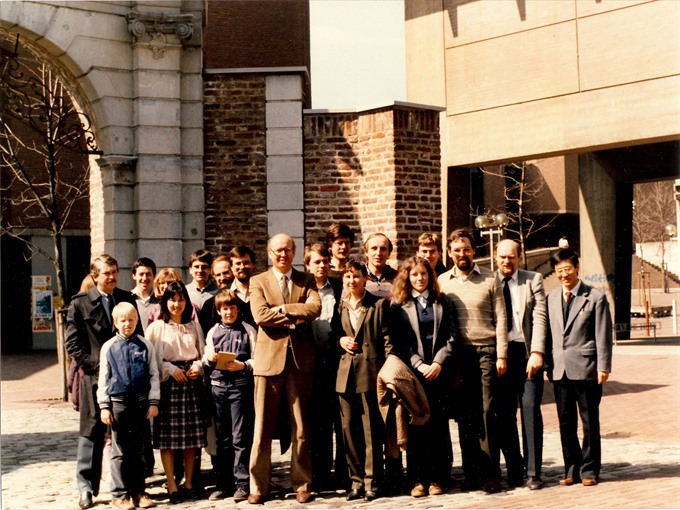 |
| Mathilde Tuyết Trần (front row, third left) during her college years in Aachen, West Germany Photo courtesy of Professor Dr. Erich Frese |
Later, the Solidarity Society dissolved, but I did not care as I was not a part of it any more.
I became as free as a bird, proud but at the same time lonely. I finished college and got a job. I worked in the former West Germany looking after my own family and concentrating on work.
But there was a piece of my heart broken that could never be healed. I tried to reconnect with old friends but all ties were lost.
It has been nearly 50 years since 1975, but during all those years, I still keep in touch with my family in Việt Nam.
I visited my parents and relatives during the hard time of the economic embargo. I saw that the family was still getting by. The only thing I noticed was that everyone was thinner than before. May be my mother had worked really hard to keep the family running and not letting me know of her hard times.
Today, I’m back in my former Sài Gòn, which of course is now known as Hồ Chí Minh City.
It’s 14 million residents help sustain a bustling economy. Personally, I believe I have remained faithful to my ideals.
But what about the people I once called friends? Those who dismissed me in the name of revolution?
Some of them have changed.
When we meet and chat in detail, the topics are wide ranging. Democracy, multi-partisanship, social development, education, arts and culture.
But during these conversations I always ask the same thing. If all the western standards they hang on to, were they really the standards? Do they see the other side of those values? Is reality true to what you hear?
I’ll never forget Wednesday April 30, 1975. Someone once said on that very day millions of people rejoiced while many others shed a tear. One thing’s for sure, if anyone tries to tell me everybody was happy, I know they would be wrong.
Fifty years is a long time to a person’s life, but it’s still short in the current of history.
I see the common benefit rising above the personal discomfort. Many people have lost their lives, their belongings, and their futures for peace to arrive in this land. Their sacrifices allow others to live better lives.
The brutal images about the war in Việt Nam have not faded in the minds of many people. The painful aftermath of the war still lingers. Memories are still retold so that in the future, we will not make the same mistakes. Everyone, every family shared their losses so history could be changed.
One positive thing is today people live in peace. Vietnamese society has made positive development, has opened up to the rest of the world yet there are still shortcomings, bad practices that need to change. But no country is perfect.
Contrary to the propaganda, the so-called “Iron curtain” no longer segregates people. Today Vietnamese travellers can freely roam the world. They join the travellers from all over the world. The tourists from Việt Nam have evolved from just shopping, to sight-seeing and to become more cultured.
World travellers come to Việt Nam year in, year out. The country took them by surprise at how free they can get around, how active the transportation and the economy is, and a bustling food industry that’s grasped everyone, young and old alike.
Today there are thousands and thousands of Vietnamese students studying overseas, a number that has long surpassed those when I was at college. Students from Việt Nam can be credited for their hard work and academic excellence.
The upper-middle class in Việt Nam has increased. The wealth levels can be seen easily through the designer clothes on sale in stores countrywide.
Việt Nam has established diplomatic relationship with 180 countries and has been recognised by 69 countries as a market economy, except for the United States and some big players in the European Union due to some “technical requirements”.
The history of Việt Nam shall be challenged even more. In the new era, there will be new challenges, because the country is located at a strategic position of the East Sea.
The most important focus for the future now rests in education. The general mindset of the people still needs to improve as popular knowledge, professional expertise and command of a foreign language remains limited.
We cannot rely on the internet to cover the shortcomings in education. Education enables culture and refines character.
National unity and security shall be top priority, considering the new challenges of the world and regional political situation. Other fields such as gender equality, traffic accidents and arts development shall follow suit.
For such reasons, April 30 is no longer simply a happy or sad day. It has become the Day of Solidarity and of National Reunification to maintain peace on this land.
We all need to remind ourselves that only with a common cause, can we survive and only when the people become wealthy, can the country become strong — VNS
*Mathilde Tuyết Trần, 66, graduated from Aachen University in Germany with a MBA in 1986. She worked in Germany until 2000 and retired in France. Fluent in German, French and English, she is author of five books published in France and Việt Nam.

